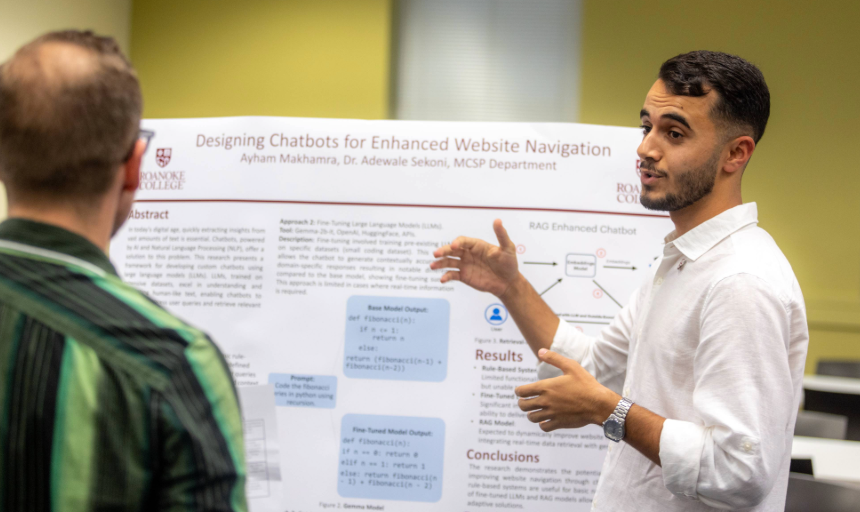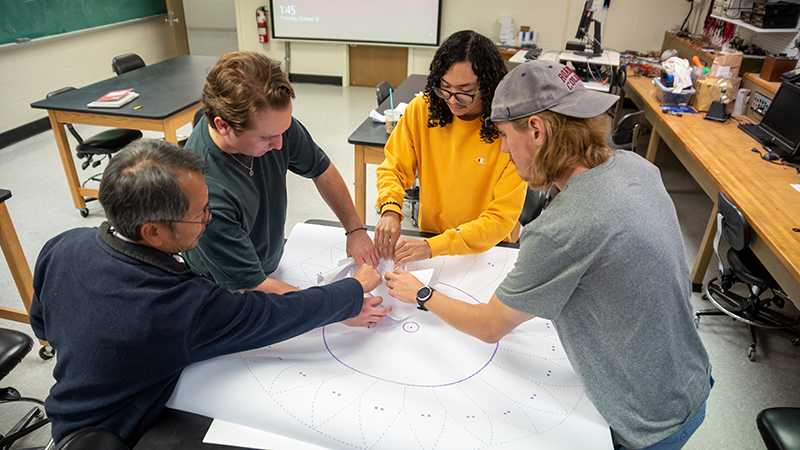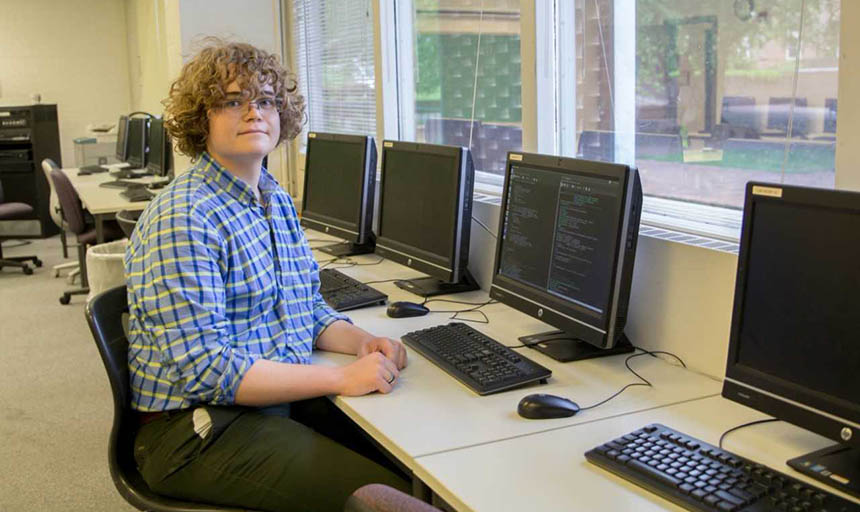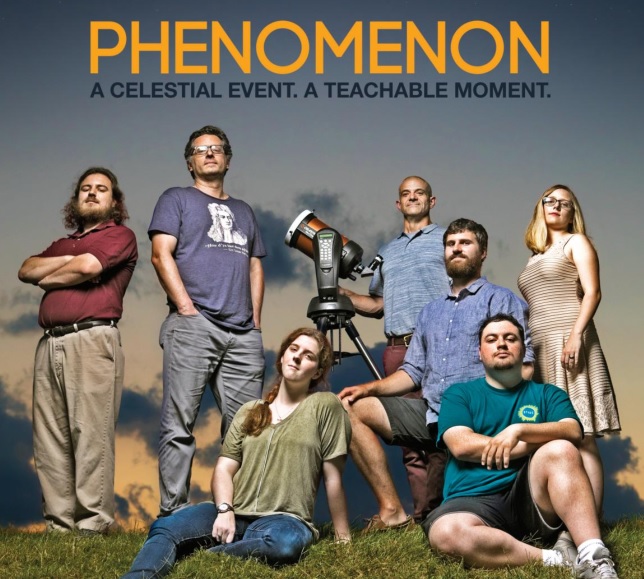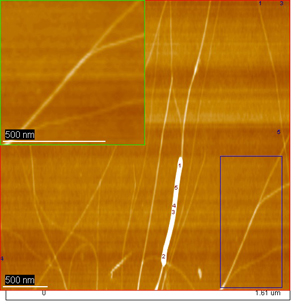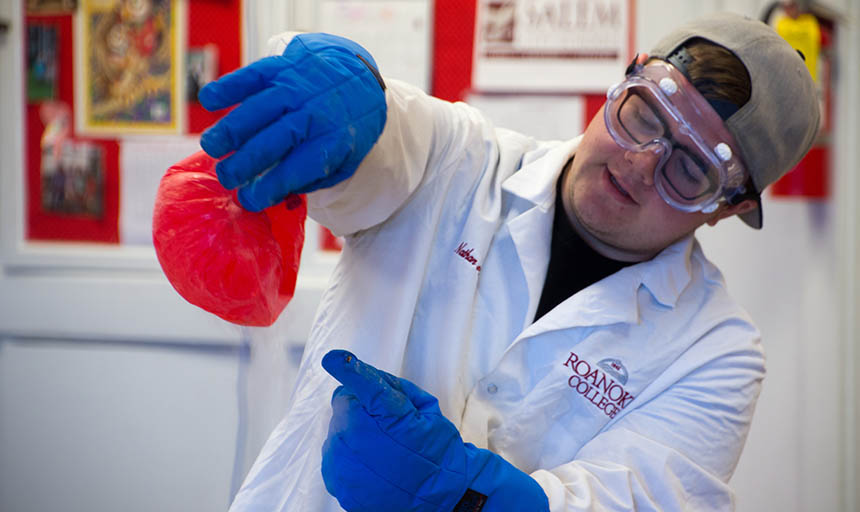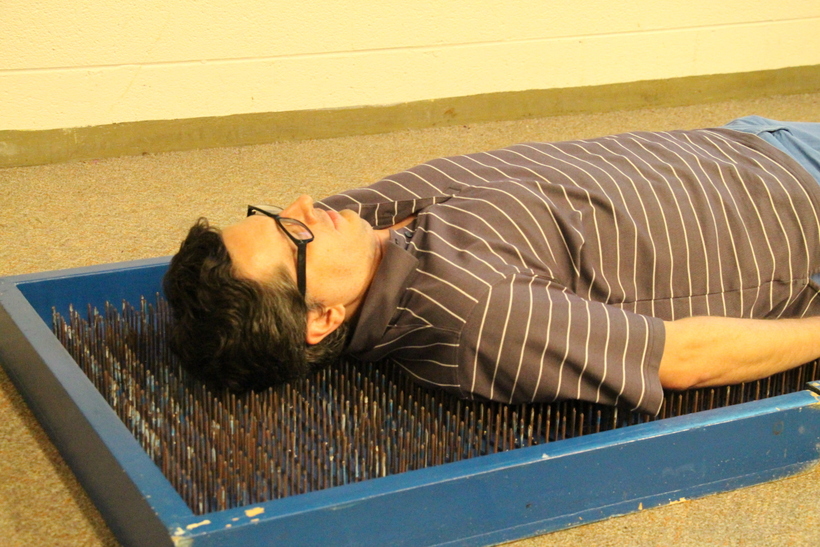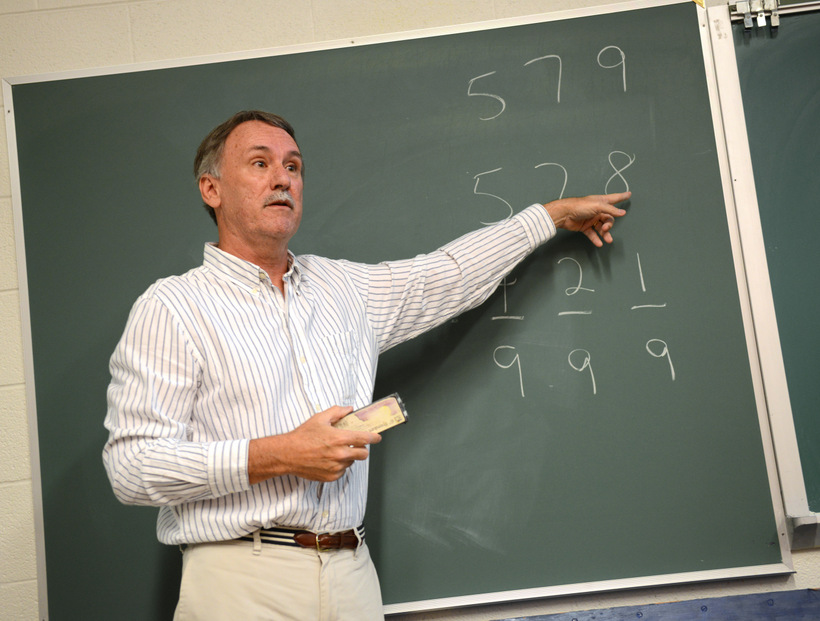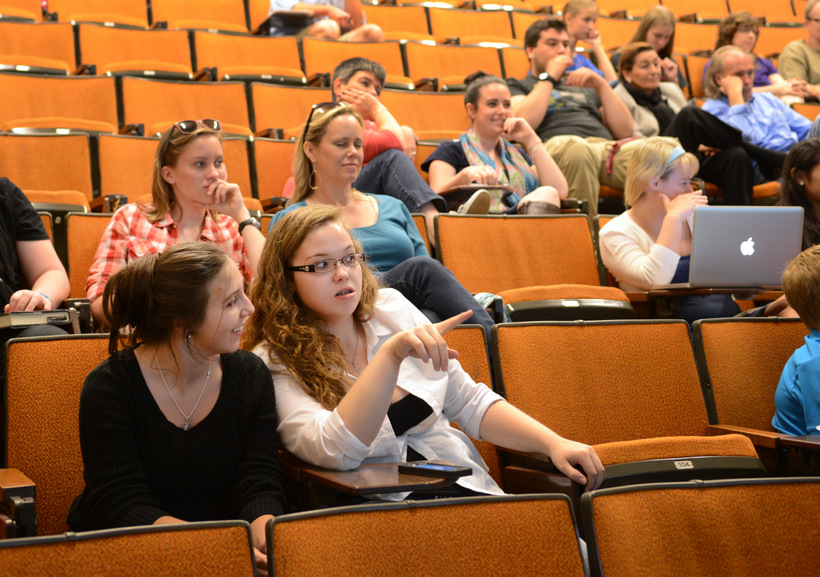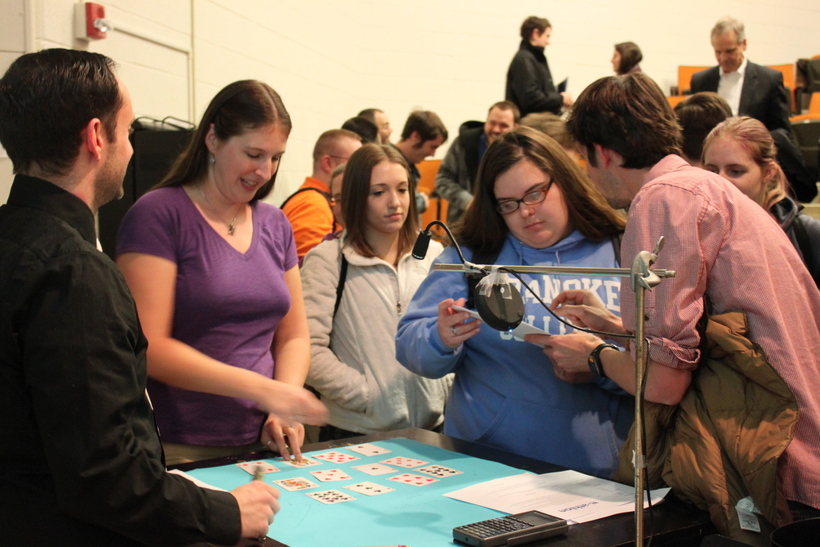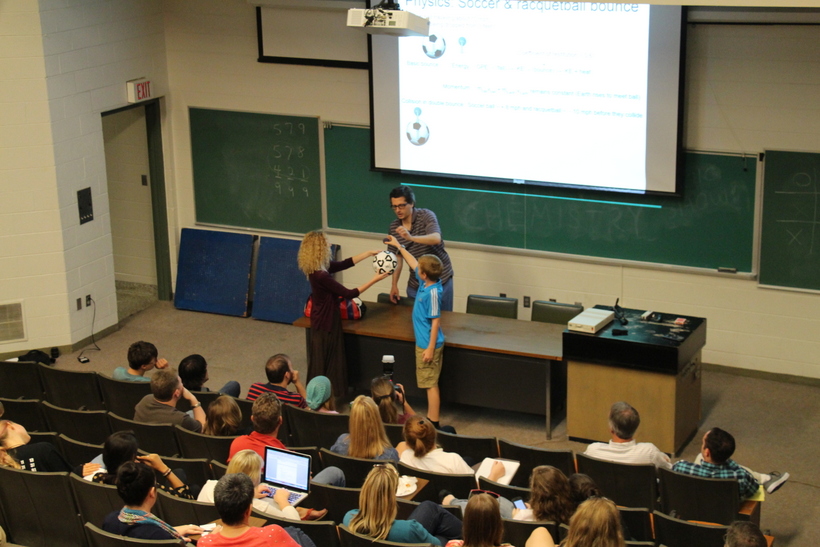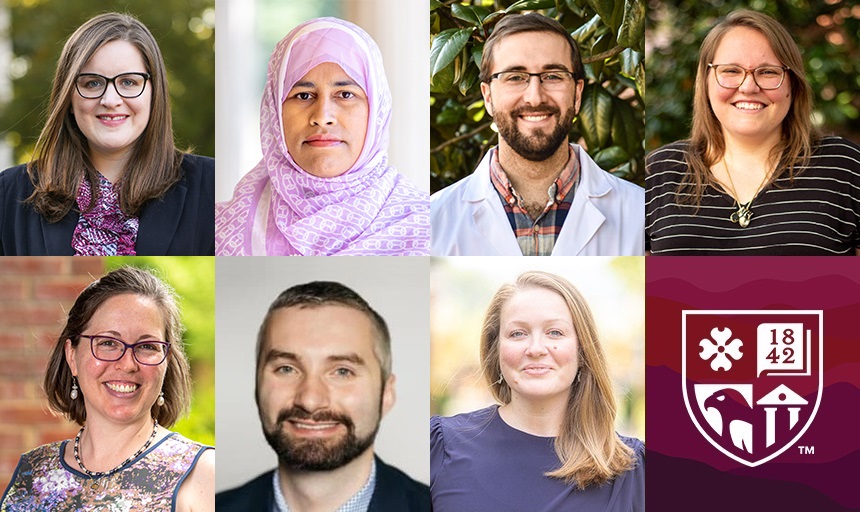Physics
Available as a major or minor
Physics provides a rich framework for appreciating the universe as well as a system for explaining the phenomena within it. Our program offers you a close-knit community, challenging coursework and the opportunity for genuine scientific investigation. Because physics impacts discoveries in astronomy, engineering, chemistry, mathematics, geology and biology, you'll be encouraged to pursue meaningful connections across the curriculum.
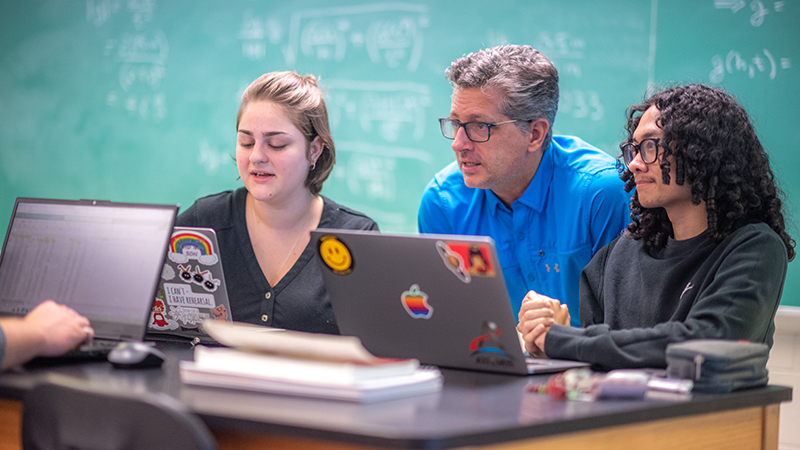
Curriculum & Courses
Student Experiences
What Makes Roanoke Different?
Learn By Doing
Careers & Outcomes
Faculty
News
-
This interactive workshop, the first of a two-part event, is intended to train researchers to better communicate their work with people outside of their field. Folks from all programs are encouraged to attend!
- Date:
- March 27, 2026
- Time:
- 4 - 6 p.m.
- Location:
Antrim Chapel
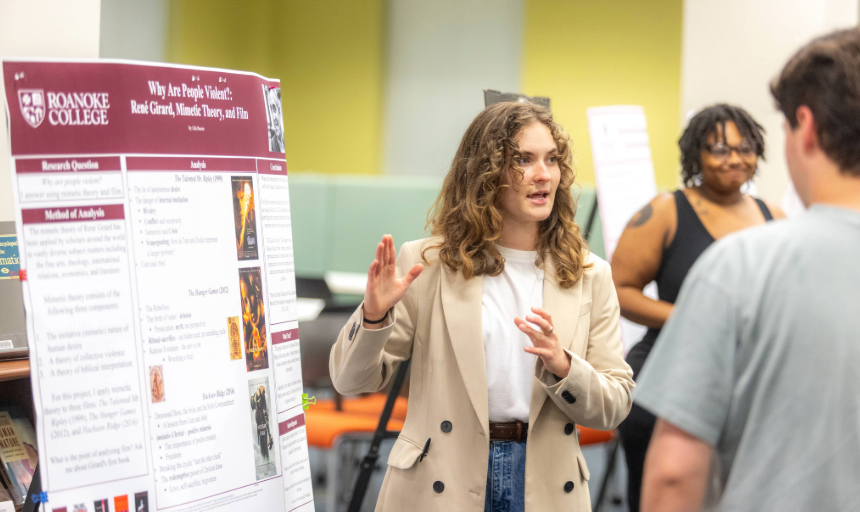
-
Engaged in research? Consider competing in this year's Nutshell Games Competition for a chance to win an Amazon e-gift card.
- Date:
- April 21, 2026
- Time:
- 6 - 7:30 p.m.
- Location:
Antrim Chapel
